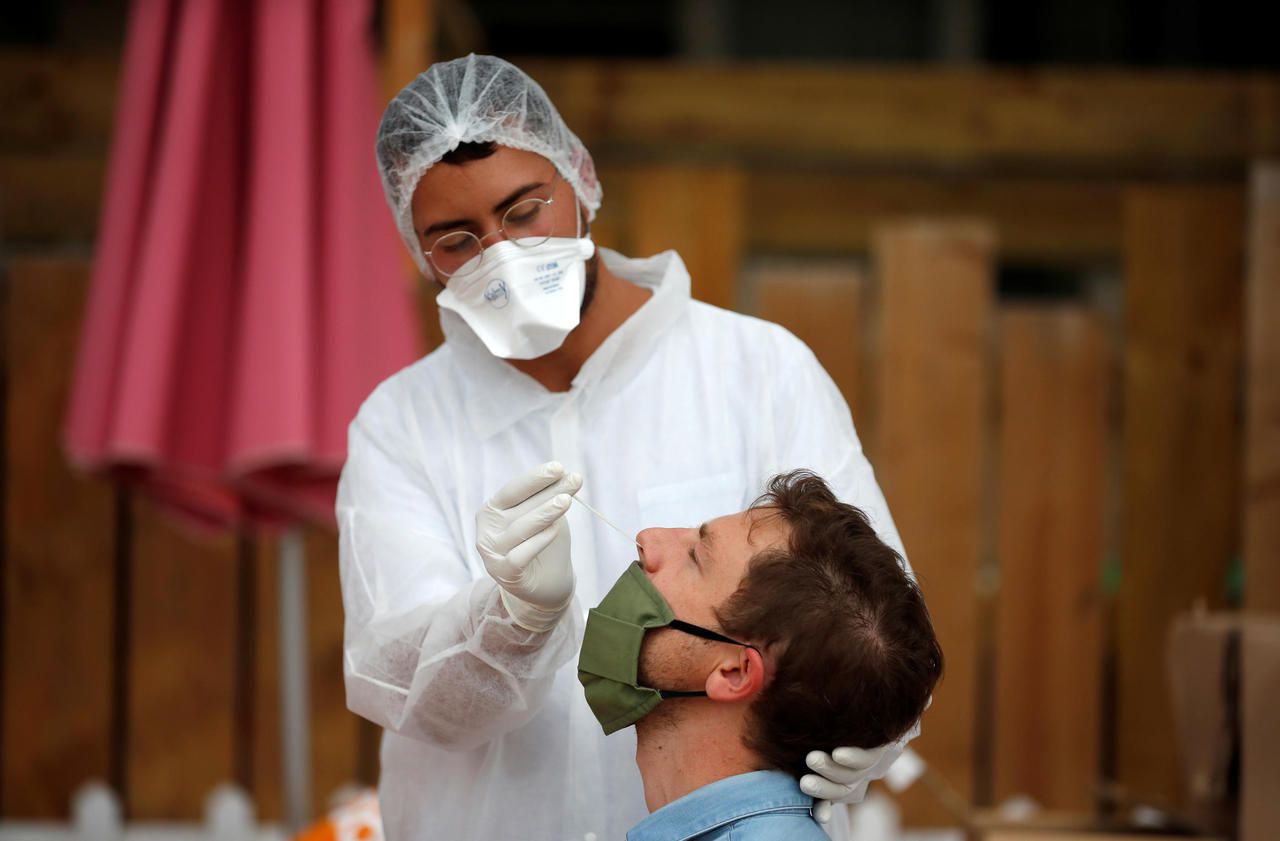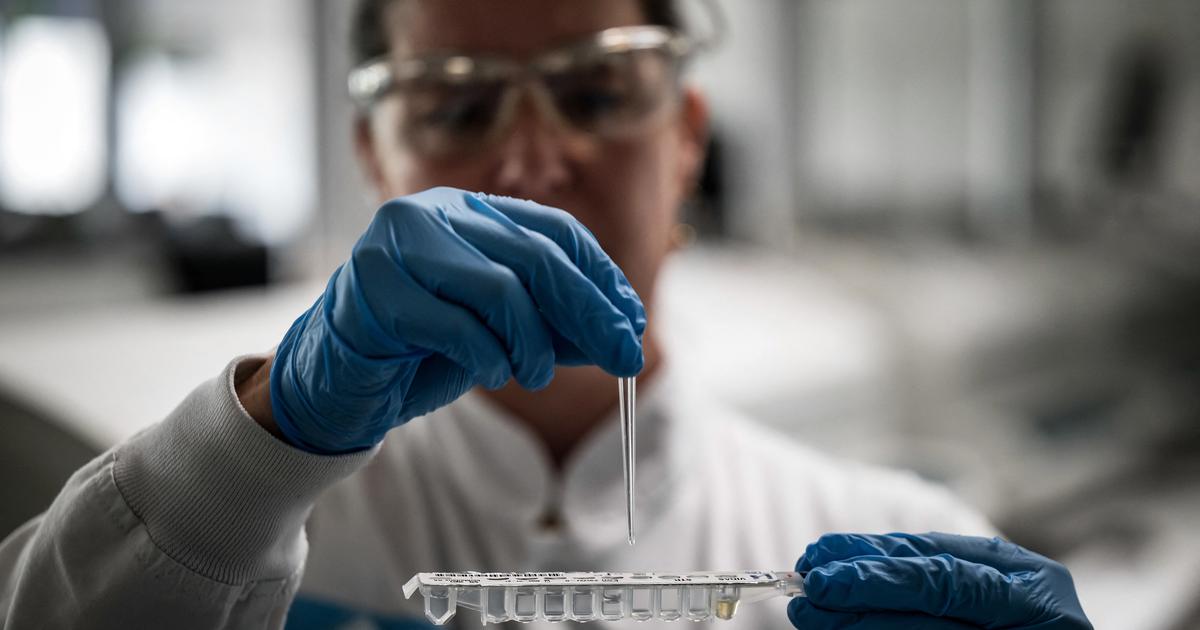Since June 5, the WHO has recommended wearing general masks to reduce the spread of SARS-CoV-2. Researchers have in fact demonstrated that these face shields prevent Covid-19 patients from spreading the germs present in their respiratory tract. Some scientists are now going further, believing that masks can also protect healthy people who wear them.
To advance this theory, Monica Gandhi, doctor specializing in infectious diseases and professor at the University of San Francisco (California), starts from an observation: "People seem to get less sick if they wear a mask". “In places where the majority of people have respected the wearing of masks, infected individuals […] seem considerably less likely to develop a severe form of the disease, compared to those who work in places where wearing masks is less generalized, ”she writes on The Conversation.
How to explain this observation? The specialist and her colleagues published their analysis in the Journal of General Internal Medicine. According to them, if virus particles manage to pass the mask barrier, they bring a smaller viral dose. However, “if the initial dose of the virus is low, the immune system is able to contain the virus by employing less drastic measures. In this case, the person has fewer symptoms, if any. "
A reduced viral dose thanks to the mask?
The arguments put forward by Monica Gandhi's team have not been demonstrated. "But they seem coherent", agrees Véronique Merle, medical officer of health and professor of public health in Rouen. First of all, the mask filters particles - at different levels, of course, depending on the type of manufacture (FFP2, surgical, tissue, etc.). "It acts as a shield: correctly worn, the blows received will be less severe", judges the specialist.
"The latest evidence showing that masks reduce the viral dose was obtained through experiments on hamsters," notes Monica Gandhi for her part. A team of Chinese researchers installed rodents in a cage whose air inlet pipes were covered with surgical masks, thus creating "masked hamsters". Animals were put into another cage, without protection. All were then exposed to the virus. As a result, fewer "masked" rodents contracted the disease.
Monica Gandhi also relies on data from epidemic outbreaks developed on board cruise ships. On the “Diamond Princess”, which remained in quarantine in February off the coast of Japan, the symptom rate was around 80%. The mask was not yet common practice. On the other hand, on the liner "Zaandam", where surgical masks were distributed after a case of Covid-19 was detected, this rate fell below 20%.
The link between quantity and aggressiveness remains to be proven
"The severity of the disease you will develop from a viral infection has a lot to do with the amount of virus (or viral dose) to which you will have been exposed initially", writes the American doctor. But this link has not been scientifically proven. “It is not ethical to knowingly contaminate humans to confirm this hypothesis,” explains Véronique Merle.
However, "the fact of saying that the quantity of an infectious agent plays a role on the severity of the disease is a well accepted principle of operation for all viruses and bacteria", confirms the medical officer of health. “For the vast majority of infectious agents, it is therefore preferable to be contaminated by a small amount than by a large amount. It makes sense to think the same for SARS-CoV-2. "
Newsletter - Most of the news
Every morning, the news seen by Le ParisienI'm registering
Your email address is collected by Le Parisien to enable you to receive our news and commercial offers. Learn more
To support her remarks, Monica Gandhi cites another study conducted on hamsters by American and Japanese scientists and published in July in the journal Proceedings of the National Academy of Sciences (PNAS). "Animals that received a higher viral dose fell more seriously ill than rodents that received a lower dose," concludes the American doctor.
The role of the immune system
Experts do not all agree on the idea of a link between the viral dose and the severity of the disease. The strength of the immune system of each person plays an important role, qualifies Véronique Merle. Faced with the same amount of virus, the resistance of an elderly person will not necessarily be the same as that of a younger person.
"A low viral load does not mean that the disease will be less serious, insists Thierry Prazuck, head of the infectious diseases department of the regional hospital of Orléans. In intensive care, patients often had a significant nasopharyngeal viral load, but it was especially their immune response that was high! Conversely, in the Orléans slaughterhouse cluster, the viral doses were very high, yet only one person was hospitalized. "Above all," the virus, even received in small doses, can multiply and cause significant damage, "adds the infectious disease specialist.
Bruno Grandbastien, president of the French Society of Hospital Hygiene (SF2H), recalls that there is little data on this subject. “We do not know very well what is the dose of virus necessary to develop the disease, and we do not know very well what is the contribution of the patient himself to the expression of a more or less severe disease. Nevertheless, this hypothesis deserves to continue to be studied. "
"There is nothing to lose by making this bet"
On reading Monica Gandhi's analysis, epidemiologist Antoine Flahault, director of the Institute for Global Health at the University of Geneva, also believes that it is necessary to “put into perspective the level of scientific evidence available, which is mainly based on on laboratory data and not real life ”. "But, in my opinion, they are sufficient to hope that the mask protects, including people who are already infected," he tempers.
The idea developed by the American doctor and her colleagues "seems to me to be consistent with what we see on a daily basis", adds Véronique Merle. “It is reasonable to think that the mask can affect both the risk of SARS-CoV-2 transmission and the severity of the infection. There is nothing to lose by making this bet. "











